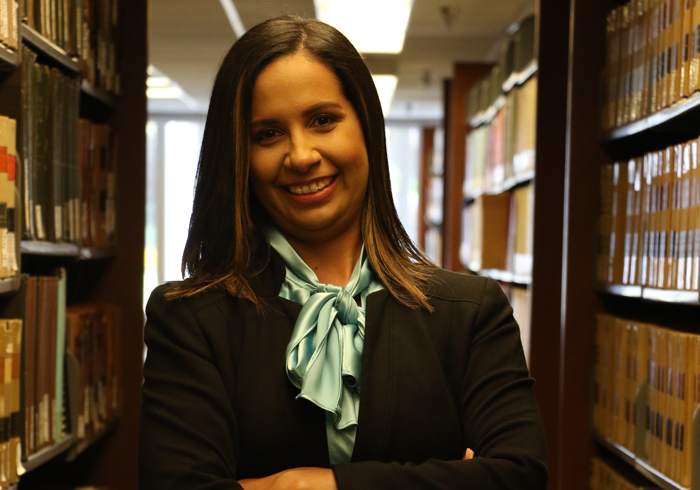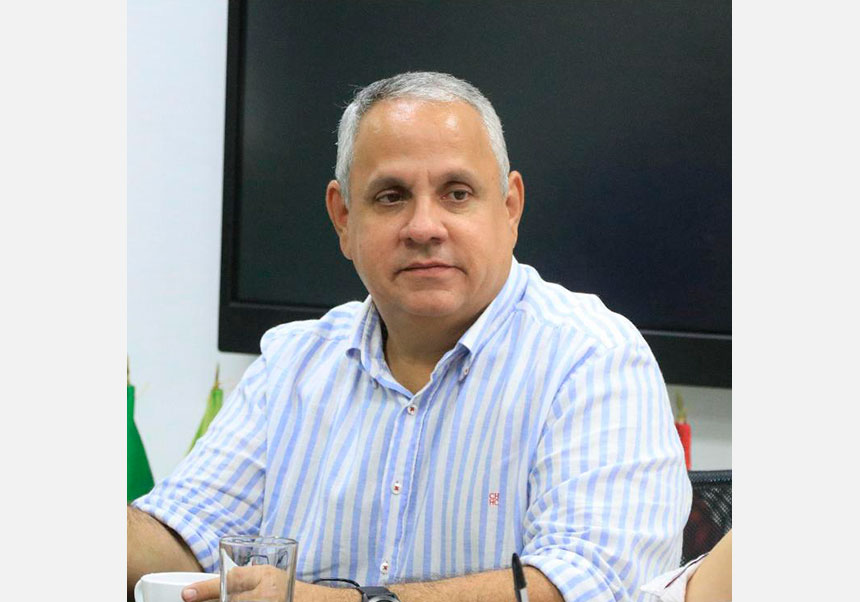
On July 16, 2018, student Alba Nydia López Arzola conducted her Final Master's Degree (TFM) entitled: "Model for the Appointment of Judges in Puerto Rico. Critical Perspective and Future Challenges", which has been directed by Prof. Dr. Silvia Barona Vilar.
30 july 2018
Title: Model for the appointment of judges in Puerto Rico. Critical Perspective and Future Challenges
Author: Alba Nydia López Arzola
The research, in addition to having an interdisciplinary approach by using methods and concepts specific to the social discipline in charge of studying public administration, was historical-political and legal comparative and propositional.
In the first chapter of content, the student made a diachronic analysis of the Puerto Rican judicial system that presented the background and development of the institution in which the appointed judges exercise the jurisdictional function. In the second chapter, he made a synchronous analysis of the current situation of judges and the challenges of the judicial function in terms of relevant concepts such as judicial quality and legitimacy, independence and impartiality, as well as transparency and accountability. In the third chapter, he presented a proposal for the future appointment of judges that could overcome the problems represented by the discretionary appointment model for the administration of justice, particularly with regard to the political influences presumably necessary to obtain a judicial post. He thus drafted a proposal to reform Law 91-1991, which had as its reference the regulatory solutions designed in the United States and Spain.
The proposal respects the constitutional model of Puerto Rico, but introduces important improvements in the process with clear rules of transparency and access to information
The work analyzed the viability of the judicial career in Puerto Rico in the face of the wide discretion that the governor currently has in the appointment of judges and culminated with a proposal for concrete reforms for the future. The proposal respects the current constitutional model of Puerto Rico, but introduces important improvements in the process with clear rules of transparency and access to information and, in addition, certain elements of the judicial career so that there is a more objective and systematic consideration of the merits of the candidates and equal opportunity for access to the judiciary.
The proposal is a sui generis system of judicial career, because it qualifies the pure opposition system existing in Spain by opting for the merit competition that requires a more comprehensive evaluation than what is involved in implementing only the tests of substantive knowledge of the law. In order to specify these aspects, the student elaborated a proposal for a scale that considers different criteria with their respective scores. The idea would also entail assigning a score to the interviews of the candidates who have obtained the best scores in the proposed scale. The aim is to obtain a shortlist of the candidates with the best scores that is binding for the governor and serves for the advice and consent of the Senate of Puerto Rico. The proposal as it was drafted attenuates political intervention in the appointment of judges and guarantees the principle of equal opportunities in access to the judiciary.
A multisectorial commission would produce a list of three binding candidates for the governor, after conducting several merit contests, with calls and public hearings for the evaluation and interview processes
The student states that the future structure to achieve access to the judiciary according to merit and professional competencies should be based on substantial improvements to the mechanisms set forth in Law 91-1991. A multisectorial commission, very rigorous and transparent, would produce a list of three binding candidates for the governor, after carrying out several merit contests, with calls and public hearings for the evaluation processes and interviews. In her view, the proposal elaborated does not seem to be as complex as the need to achieve the union of political wills in order to achieve such changes.
The Master’s Degree thesis defense took place at the Universitat de València, before the Tribunal composed of doctors Carlos A. Esplugues Mota and Guillermo Palao Moreno and doctor Elena Martínez García. The work was catalogued by the members of the Tribunal as very interesting, exhaustive and very well structured, with a good methodological command, and excellently written. At the end of the defense, the TFM obtained the mark of 9.75/10.00 being considered as an outstanding work.













